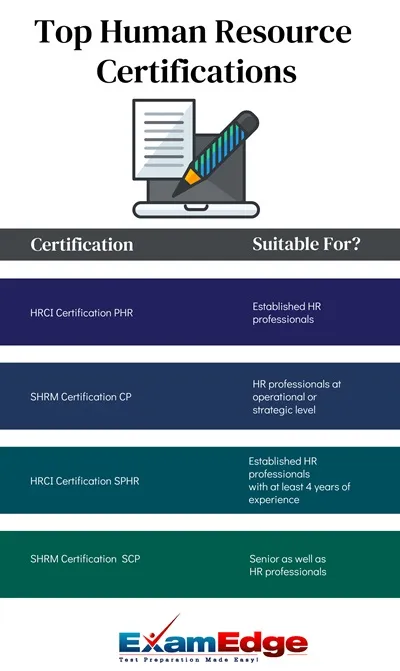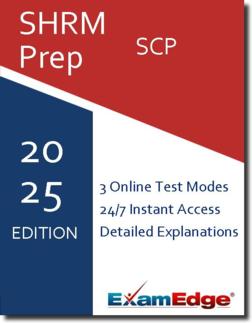SHRM Senior Practice Tests & Exam Prep Questions - Blogs
Based on 17 Reviews
- Real Exam Simulation: Timed questions and matching content build comfort for your SHRM SCP test day.
- Instant, 24/7 Access: Web-based SHRM Senior Certified Professional practice exams with no software needed.
- Clear Explanations: Step-by-step answers and explanations for your SHRM exam to strengthen understanding.
- Boosted Confidence: Reduces anxiety and improves test-taking skills to ace your SHRM Senior Certified Professional (SHRM-SCP).

Exam Edge Blogs for SHRM Senior Certified Professional

How to Get SHRM Certified: A Step-By-Step Guide for Success
Earning a certification from the Society for Human Resource Management (SHRM) can help you reach for higher HR career prospects. This comprehensive gu...
Read More
The Difference Between SHRM-CP and SHRM-SCP: A Guide
If you're pursuing a career in Human Resources (HR), you may have come across the acronyms SHRM-CP and SHRM-SCP. The SHRM-CP (Society for Human Resour...
Read More
Navigating the Differences Between HRCI and SHRM Certifications: A Comprehensive Guide
Are you looking for a job in Human Resources (HR), certifications play a pivotal role in demonstrating proficiency, credibility, and career advancemen...
Read More
How to Prepare for the SHRM SCP Exam: Tips for Success
Earning the SHRM Senior Certified Professional (SHRM SCP) credential signifies your expertise in the field of human resources. This rigorous exam dema...
Read More
Understanding the Scoring Process of the SHRM SCP Exam
Are you about to take the SHRM SCP (Society for Human Resource Management Senior Certified Professional) exam? In preparing for this next big step in ...
Read MoreExam Edge Blogs for SHRM Senior Certified Professional

How to Get SHRM Certified: A Step-By-Step Guide for Success
Earning a certification from the Society for Human Resource Management (SHRM) can help you reach for higher HR career prospects. This comprehensive gu...
Read More
The Difference Between SHRM-CP and SHRM-SCP: A Guide
If you're pursuing a career in Human Resources (HR), you may have come across the acronyms SHRM-CP and SHRM-SCP. The SHRM-CP (Society for Human Resour...
Read More
Navigating the Differences Between HRCI and SHRM Certifications: A Comprehensive Guide
Are you looking for a job in Human Resources (HR), certifications play a pivotal role in demonstrating proficiency, credibility, and career advancemen...
Read More
How to Prepare for the SHRM SCP Exam: Tips for Success
Earning the SHRM Senior Certified Professional (SHRM SCP) credential signifies your expertise in the field of human resources. This rigorous exam dema...
Read More
Understanding the Scoring Process of the SHRM SCP Exam
Are you about to take the SHRM SCP (Society for Human Resource Management Senior Certified Professional) exam? In preparing for this next big step in ...
Read More

